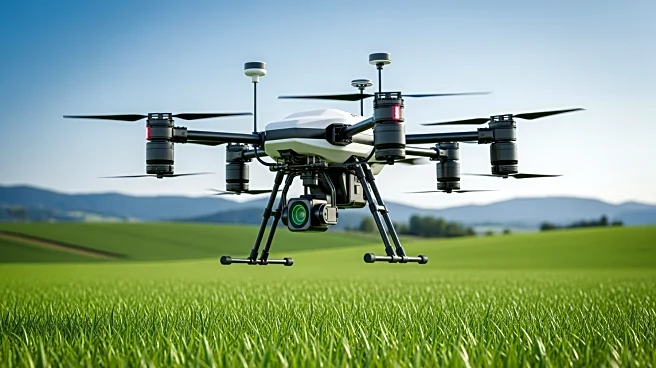What's Happening?
The agricultural testing market is projected to experience significant growth, with a compound annual growth rate (CAGR) of 7% by 2031. This growth is attributed to increasing demand from end-users, driven by evolving consumer preferences, technological
advancements, and heightened awareness of the benefits of agricultural testing products. The market is expanding as businesses innovate to meet consumer needs and capitalize on emerging trends. Key players in the market include SGS, Eurofins, Intertek, Bureau Veritas, ALS Limited, TUV Nord Group, Merieux, AsureQuality, RJ Hill Laboratories Limited, and SCS Global. The market is segmented by region, covering North America, Europe, Asia Pacific, Middle East & Africa, and Central & South America.
Why It's Important?
The growth of the agricultural testing market is crucial for the agriculture industry as it enhances the effectiveness of crop protection products, ensuring efficient and effective application of pesticides and fertilizers. This is particularly important in addressing issues such as water quality and spray solution properties. As the market expands, it provides opportunities for businesses to strengthen their position and innovate, which can lead to improved agricultural practices and increased crop yields. The technological advancements in this sector also contribute to better resource management and sustainability in agriculture, benefiting both producers and consumers.
What's Next?
As the agricultural testing market continues to grow, companies are expected to develop and modify their business expansion plans to capitalize on the substantial growth opportunities in both developed and emerging markets. The industry is likely to see increased competition as businesses strive to innovate and meet the evolving needs of consumers. Additionally, the market's expansion may lead to more strategic partnerships and collaborations among key players to enhance their offerings and market reach.
Beyond the Headlines
The expansion of the agricultural testing market may have broader implications for environmental sustainability and food security. By improving the efficiency of crop protection products, the industry can contribute to reducing the environmental impact of agriculture and promoting sustainable farming practices. Furthermore, the increased focus on testing and quality assurance can enhance food safety and consumer confidence in agricultural products.

















